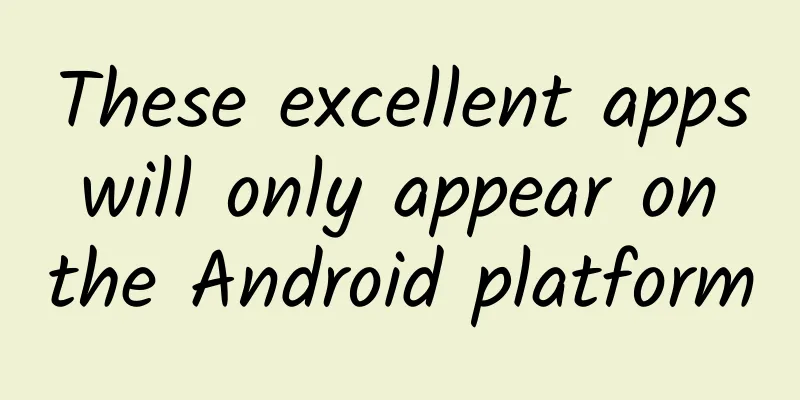Never expected | Don’t take it lightly, this kind of harm damages the brain in seconds!

|
Review expert: Peng Guoqiu, deputy chief physician of the Fourth Medical Center of the General Hospital of the Chinese People's Liberation Army Recently, the topic #Diabetes is like soaking organs in sugar water# has become a hot search topic. High blood sugar is like a slow knife, which will damage the heart, kidneys, nerves and other tissues and organs little by little. If blood sugar exceeds the standard for a long time, the body is like soaking in high-concentration sugar water. There are 141 million diabetics in my country, which means that there is 1 diabetic in every 10 adults around us. Source: Weibo Is diabetes really incurable? It seems not. Recently, according to the news from The Paper, Cell Discovery published the research results of the world's first case of autologous regenerative islet transplantation to cure diabetes. The patient has been completely independent of insulin for 33 months. This is the world's first case report of using autologous regenerative islet transplantation derived from stem cells to successfully cure diabetes with severely damaged islet function. Screenshot source: Baidu The patient had a 25-year history of type 2 diabetes and developed end-stage diabetic nephropathy, also known as uremia. In the later stages, due to the near-failure of his pancreatic islet function, he needed to inject insulin multiple times a day, and there was a great risk of severe complications of diabetes in the future. The research team performed autologous regenerative islet transplantation treatment on him. After the operation, he gradually began to completely wean himself off exogenous insulin, and gradually reduced the dosage of oral hypoglycemic drugs, and completely withdrew the drugs in the later stages. The patient has now been completely free of insulin for 33 months. The 25-year-long diabetes was successfully cured. This is the first human tissue replacement therapy in the world to use autologous derived islets to treat T2D patients with impaired pancreatic islet function. Seeing this, some people may say, "It's okay, I have hypoglycemia and I won't get diabetes." It seems that there are some misunderstandings about hypoglycemia. Today, let's talk about hypoglycemia. Under what circumstances will hypoglycemia occur? In daily news reports, we often hear about people fainting or getting into danger due to low blood sugar. Moreover, the harm of low blood sugar is calculated in minutes or even seconds. First of all, you need to know what hypoglycemia is. Hypoglycemia refers to fasting blood sugar concentration of adults below 2.8mmol/L, and blood sugar concentration of diabetic patients ≤3.9mmol/L. The symptoms of hypoglycemia are mainly sweating, hunger, palpitations, pale complexion, etc. Severe hypoglycemia patients may also experience lack of concentration, agitation, irritability, and even coma. Under normal circumstances, if you go hungry for a day, you will feel hungry, but you may not suffer from hypoglycemia, because the human body has glycogen and fat energy reserves, which will be converted into sugar and sent to the blood when you are hungry. If you go hungry for a long time, your blood sugar will drop, but it will not be so severe that you will fall into a coma. Can hypoglycemia and diabetes coexist? Many people believe that diabetes and hypoglycemia will not occur in the same person at the same time, however, this is not the case. In fact, diabetic patients may also experience hypoglycemia symptoms during treatment or due to factors such as medication, diet, and exercise. Why is this? First, let's understand what diabetes is. It is a metabolic disease characterized by high blood sugar levels, which is caused by defective insulin secretion or damage to its biological function, or both. Comparison chart of normal blood sugar and high blood sugar Source: Internet Therefore, for diabetic patients, since their blood sugar self-regulation ability is impaired, in addition to paying attention to elevated blood sugar, they must also pay attention to avoiding factors that cause hypoglycemia. Common causes of hypoglycemia in diabetes include: (1) Drugs: Insulin or insulin secretagogues: Insulin, sulfonylureas and non-sulfonylurea insulin secretagogues can all cause hypoglycemia. (2) Not eating on time or eating too little; (3) Increased physical activity; (4) Alcohol intake, especially drinking on an empty stomach. It could just be low blood sugar As mentioned earlier, patients with symptoms of hypoglycemia do not necessarily have diabetes, so sometimes it may just be hypoglycemia. For example, physiological hypoglycemia, commonly known as "fainting from hunger", is a normal body reaction to lower blood sugar, and has nothing to do with disease. When you work and study, forget to eat and sleep, when you look in the mirror, worry about your figure, and decide to quit carbohydrates, hypoglycemia will quietly come to you. Another type of hypoglycemia is pregnant women. Because pregnant women need to supply a lot of nutrients to the fetus, they are prone to hypoglycemia before meals and should pay attention to adding meals. What to do if you have low blood sugar Hypoglycemia is always acute and can suddenly knock you down. What should you do at this time? If you are a diabetic, you should be alert to factors that may induce hypoglycemia during treatment. For example, if your blood sugar is usually well controlled, but you suddenly start to exercise a lot one day, or suddenly eat a small meal, or increase the dosage of medicine, your blood sugar will drop too low. At this time, you should seek medical treatment in time, follow the doctor's advice to adjust the medicine, and try to have a regular diet and exercise, without big ups and downs. If you are not a diabetic, you can give priority to monosaccharides that can make blood sugar rise the fastest, such as cola, Sprite, sugar water, and candies that can be chewed quickly. After the symptoms are relieved, eat some bread and other staple foods to ensure that blood sugar does not drop. If blood sugar is not replenished, further damage will occur, among which the more important is damage to the brain. The brain is vital to us. Under normal circumstances, the energy required by our brain cells comes almost entirely from glucose. Although brain cells choose to use ketone bodies to provide energy when hypoglycemia occurs, it takes a certain amount of time to produce ketone bodies, so the brain lacks sufficient energy. If hypoglycemia lasts for a long time or occurs repeatedly, the brain's nerve cells may undergo degeneration and necrosis, cerebral edema, and even lead to permanent brain dysfunction or death. In short, do not underestimate hypoglycemia. It may seem like just a dizziness, but the risk factor behind it is no less than that of high blood sugar, and sometimes even more dangerous. Therefore, it is important to carry food and emergency cards to prevent hypoglycemia with you. When hypoglycemia occurs frequently, you should seek medical attention in time to minimize the risk. |
<<: Do flamingos get their red feathers from eating? Actually, humans can too!
Recommend
Can quitting sugar make us more beautiful and younger?
Recently, the news that "a woman became whit...
Huge profits and surprises before iPhone 6 launch
On the evening of September 10, Apple released th...
The 10 most common problems on Android
[[156039]] Here are the most common React native ...
New Audi A4L review: How does this entry-level luxury car, which has been hailed as a god car by car reviewers, perform?
As living standards continue to improve, people&#...
The dark blue S05 is unveiled, with a youthful and dynamic design and a 2880mm wheelbase with plenty of space.
Recently, DeepBlue S05, a new model under DeepBlu...
Why don't humans have green hair?
Every kind of life has its own color, and the evo...
Let's talk about the love and hate between ordinary permissions and dangerous permissions
In Android development, permissions are a securit...
Do you always remember things wrongly? Don’t panic! This means your brain is working properly…
Reviewer of this article: Chen Haixu, Deputy Dire...
Nokia's lesson is not far away. Toyota, which lacks a supply chain, will inevitably be unable to support itself in hydrogen energy.
In 2007, Steve Jobs brought the first generation ...
Electric Technology Car News: Wuling Hongguang and Baojun 730 compete with each other, Changan Lingxuan may reap the benefits
MPVs are very popular among car owners in some se...
In-depth analysis: Methodology for placing advertising in information flow channels with tens of millions of users!
I believe everyone is familiar with information f...
Aiti Tribe Stories (19): How could you not know these things when you switched to IT technology? !
[51CTO.com original article] If someone asks you ...
After interviewing more than 50 UI designers, I summarized these job hunting skills!
Some time ago, the company was recruiting UI desi...
What impact will the return of iPhone production to the United States have on Chinese mobile phone companies?
Not long ago, the newly elected President of the ...
Nitrite is produced during the pickling process, so we can’t eat a single bite of kimchi?
Pickles are a traditional Chinese food. The most ...









